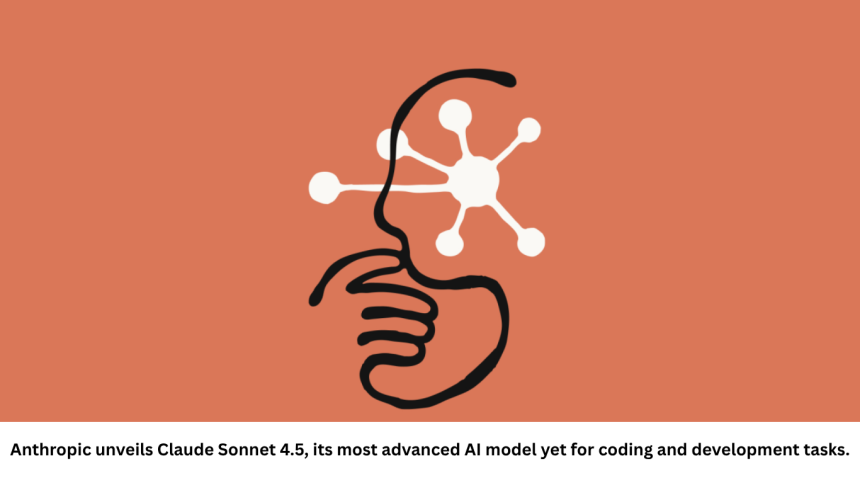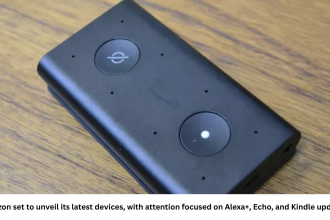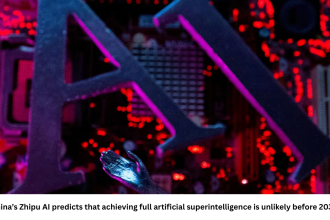Artificial Intelligence is transforming the way we live, work, and create. Over the past few years, the world has seen incredible progress in language models, from simple text generation to complex reasoning and coding tasks. Among the leaders in this field is Anthropic, the company behind the Claude family of AI models. With the release of Claude Sonnet 4.5, Anthropic takes another major step forward, introducing its most powerful and refined model for coding, reasoning, and development-related tasks.
- Understanding Anthropic and the Claude Family
- What Makes Claude Sonnet 4.5 Special
- A Step Forward in Coding Intelligence
- Enhanced Reasoning and Problem Solving
- Improvements Over Previous Claude Versions
- Focus on Safety and Alignment
- Applications in Software Development
- Use Cases Beyond Coding
- Comparing Claude Sonnet 4.5 with Other AI Models
- How Claude Sonnet 4.5 Benefits Businesses
- Accessibility and Interface
- The Future of AI Coding Assistants
- Ethical and Social Considerations
- The Importance of Human-AI Collaboration
- Real-World Examples of Claude Sonnet 4.5 in Action
- Limitations and Challenges
- How to Get the Best Results from Claude Sonnet 4.5
- The Road Ahead for Anthropic
- Frequently Asked Questions
- Conclusion
Claude Sonnet 4.5 is designed to compete directly with the best AI systems available today. It builds on Anthropic’s safety-first approach while delivering greater intelligence, deeper reasoning, and improved usability for developers, businesses, and creative professionals. In this article, we will explore what makes Claude Sonnet 4.5 special, how it compares to previous versions, and how it is reshaping the landscape of AI-driven coding and development.
Understanding Anthropic and the Claude Family
Anthropic is an artificial intelligence company founded by former OpenAI researchers. The company’s main goal is to build AI systems that are powerful, safe, and aligned with human values. Anthropic’s models are known for their ability to engage in thoughtful, context-aware dialogue and reason through complex problems without producing harmful or biased results.
The Claude family of models, named after Claude Shannon—the father of information theory—has evolved rapidly. Earlier models like Claude 1 and Claude 2 focused on improving natural conversation and factual reliability. With Claude 3, Anthropic pushed boundaries in reasoning and comprehension. Now, with Claude Sonnet 4.5, the company combines all these strengths with advanced coding capabilities and greater speed.
What Makes Claude Sonnet 4.5 Special
Claude Sonnet 4.5 is more than just another AI upgrade. It represents a significant milestone in how artificial intelligence can assist with programming, data analysis, and software development. The model integrates improved reasoning, memory, and code understanding with enhanced safety mechanisms, ensuring that users can rely on it for both creative and professional purposes.
Some of its most notable improvements include better handling of long context inputs, stronger mathematical and logical accuracy, faster response times, and improved performance on coding benchmarks. It also offers a more natural conversational flow, making it easier for users to interact with it like a real collaborator rather than a tool.
A Step Forward in Coding Intelligence
Coding has always been one of the most demanding areas for AI because it requires precision, logic, and deep understanding of syntax and structure. Claude Sonnet 4.5 demonstrates exceptional skill in writing, debugging, and explaining code. It supports multiple programming languages, including Python, JavaScript, Java, C++, Go, and more.
Developers can use it to:
-
Generate clean, readable, and efficient code from simple prompts
-
Debug complex code errors and explain the causes
-
Translate code between different languages
-
Create documentation automatically
-
Suggest algorithmic improvements
-
Understand and rewrite legacy code
Claude Sonnet 4.5 also offers step-by-step reasoning, meaning it can explain its logic behind a certain solution. This helps users learn programming concepts while solving real-world problems.
Enhanced Reasoning and Problem Solving
A key feature of Claude Sonnet 4.5 is its enhanced reasoning capability. The model can follow long chains of logic, analyze abstract concepts, and even plan multi-step solutions. This makes it ideal not only for coding but also for tasks like writing research papers, solving math problems, and generating business insights.
For example, when asked to build a web application, Claude Sonnet 4.5 can outline the architecture, generate code for the front-end and back-end, and even recommend deployment strategies. It does all this while explaining each step clearly, ensuring users understand the reasoning process.
This ability to combine understanding, explanation, and creation sets it apart from previous AI models.
Improvements Over Previous Claude Versions
Each version of Claude has brought major improvements in reasoning, context handling, and user safety. Claude Sonnet 4.5 continues this tradition with several advancements:
-
Deeper Context Understanding: It can handle longer inputs, meaning it remembers more information during a session and keeps track of context accurately.
-
Better Coding Performance: The model has been trained on a broader and cleaner code dataset, improving its ability to generate and debug code efficiently.
-
Faster and More Reliable Responses: Claude Sonnet 4.5 is optimized for speed, producing answers quickly while maintaining accuracy.
-
Improved Safety Filters: Anthropic continues to prioritize safety, ensuring the model avoids harmful or misleading outputs.
-
Natural Conversation Flow: It interacts more smoothly, adapting to a user’s tone and intent.
These upgrades make Claude Sonnet 4.5 suitable not only for developers but also for researchers, educators, and businesses that rely on precise, data-driven communication.
Focus on Safety and Alignment
Anthropic’s primary mission has always been to build AI that is safe and aligned with human values. This means their models are trained not just to perform tasks efficiently, but to understand ethical guidelines, respect user privacy, and avoid harmful outputs.
Claude Sonnet 4.5 continues this legacy. It incorporates advanced “constitutional AI” techniques—an approach developed by Anthropic to teach models ethical reasoning. Instead of relying solely on human supervision, the model uses a set of rules (a kind of “constitution”) that helps it make responsible decisions during interactions.
This system allows Claude Sonnet 4.5 to balance creativity and caution. It can generate innovative ideas while staying within boundaries of fairness and factual correctness.
Applications in Software Development
Claude Sonnet 4.5 is particularly useful for software developers. It acts like a personal assistant that understands both high-level design and low-level coding tasks. Developers can use it to streamline every stage of their workflow—from brainstorming and architecture planning to code generation and documentation.
Some common applications include:
-
Code Generation: Quickly writing functions, APIs, or full applications from natural language prompts.
-
Debugging: Identifying logic errors and providing solutions with explanations.
-
Testing: Generating unit tests automatically for existing codebases.
-
Documentation: Creating detailed code documentation in plain English.
-
Version Control Support: Writing commit messages, comparing code versions, and suggesting updates.
These capabilities make Claude Sonnet 4.5 not only a time-saving tool but also a powerful learning companion for new programmers.
Use Cases Beyond Coding
Although Claude Sonnet 4.5 is optimized for coding, its uses extend far beyond programming. It can handle a variety of complex and creative tasks, such as:
-
Writing research articles or business reports
-
Summarizing long documents
-
Translating text into multiple languages
-
Generating marketing content
-
Supporting customer service automation
-
Producing data analysis and visualization explanations
Because it understands context and tone, Claude Sonnet 4.5 can adjust its writing style for different audiences—technical or non-technical, formal or casual.
Comparing Claude Sonnet 4.5 with Other AI Models
The release of Claude Sonnet 4.5 puts Anthropic in direct competition with other leading AI developers like OpenAI and Google DeepMind. When compared to models such as GPT-4 and Gemini, Claude Sonnet 4.5 focuses more on safety, transparency, and user control.
Its balanced performance across reasoning, creativity, and compliance makes it ideal for enterprise users who prioritize trust and reliability. While other models may excel in certain areas, Claude Sonnet 4.5’s well-rounded design gives it an advantage in professional settings where accuracy and responsibility are critical.
Developers have noted that it performs exceptionally well in code-related tasks and technical writing, often producing cleaner and more maintainable code.
How Claude Sonnet 4.5 Benefits Businesses
Businesses around the world are integrating AI tools to automate workflows, increase productivity, and reduce costs. Claude Sonnet 4.5 offers these benefits with an added layer of reliability and control.
It can help teams with:
-
Software Development: Reducing coding time and improving product quality.
-
Data Management: Summarizing and analyzing large datasets.
-
Customer Support: Drafting responses and maintaining tone consistency.
-
Project Planning: Creating clear, step-by-step action plans from project descriptions.
-
Content Creation: Writing reports, blog posts, or marketing materials.
By integrating Claude Sonnet 4.5 into existing workflows, organizations can achieve faster results without compromising quality or ethics.
Accessibility and Interface
Anthropic has designed Claude Sonnet 4.5 to be accessible through multiple platforms, including APIs and web interfaces. This flexibility allows developers to integrate it into apps, websites, or backend systems easily.
The interface is designed to be user-friendly, providing clear input and output sections. Whether you are a programmer, writer, or business analyst, you can start using the model without extensive technical knowledge.
Additionally, Anthropic offers various model sizes and versions tailored for different tasks, ensuring that users can find the right balance between performance and cost.
The Future of AI Coding Assistants
Claude Sonnet 4.5 represents the growing potential of AI in software engineering. As models become more capable, they move beyond being simple code generators toward becoming collaborative partners in problem-solving.
In the future, AI models like Claude Sonnet 4.5 may help design entire systems, test software automatically, and even predict project risks. The line between human creativity and machine assistance will continue to blur, creating new opportunities for innovation.
However, this progress also brings responsibility. Developers must ensure AI tools are used ethically, without replacing human judgment or creativity.
Ethical and Social Considerations
The rise of AI-powered tools raises important ethical questions. While models like Claude Sonnet 4.5 offer great advantages, they must be used responsibly to prevent misuse. Anthropic’s focus on safety is a positive step toward ensuring that AI benefits society without causing harm.
Some key ethical areas include:
-
Transparency: Users should know when and how AI is used in decision-making.
-
Fairness: AI should avoid bias in outputs, especially in sensitive contexts.
-
Privacy: Personal or confidential data must never be shared or leaked.
-
Accountability: Humans should remain responsible for decisions assisted by AI.
By addressing these issues, companies like Anthropic are shaping a more trustworthy AI ecosystem.
The Importance of Human-AI Collaboration
Claude Sonnet 4.5 shows that AI is not meant to replace humans but to work alongside them. When humans and AI collaborate, the results are often more creative and efficient than either could achieve alone.
Developers can rely on Claude to handle repetitive tasks while focusing on complex design decisions. Writers can use it to draft content faster while keeping their unique voice. Businesses can automate processes while maintaining a personal touch with customers.
This balance between automation and human oversight defines the future of artificial intelligence.
Real-World Examples of Claude Sonnet 4.5 in Action
Many organizations are already experimenting with Claude Sonnet 4.5 in different ways.
For instance:
-
Startups use it to quickly prototype new software ideas without needing large engineering teams.
-
Educators use it to teach programming, where students can ask the model to explain concepts step by step.
-
Enterprises use it for code review automation and documentation generation.
-
Researchers use it for data processing and report writing.
These examples show how Claude Sonnet 4.5 fits into both educational and professional environments, offering speed, accuracy, and clarity.
Limitations and Challenges
While Claude Sonnet 4.5 is powerful, it is not perfect. Like all AI models, it has limitations. It can sometimes make reasoning errors, misunderstand ambiguous prompts, or generate incomplete code. Users must review outputs carefully before implementing them.
Another challenge is the computational cost of running such advanced models. Although Anthropic has optimized efficiency, large-scale AI systems still require significant processing power.
Despite these challenges, the improvements in Claude Sonnet 4.5 show that AI is moving steadily toward more dependable and user-friendly solutions.
How to Get the Best Results from Claude Sonnet 4.5
To make the most of Claude Sonnet 4.5, users should follow best practices when interacting with it:
-
Be Specific: Give clear and detailed prompts to get precise answers.
-
Use Step-by-Step Instructions: If your task is complex, break it into smaller steps.
-
Ask for Explanations: Let the model explain its reasoning to verify accuracy.
-
Review Outputs Carefully: Always double-check generated code or text for errors.
-
Use Ethical Guidelines: Avoid asking the model to produce harmful or misleading content.
Following these simple guidelines ensures that the collaboration between human and AI remains productive and responsible.
The Road Ahead for Anthropic
Anthropic’s steady progress shows its long-term vision for safe and reliable AI. With each model release, the company strengthens its commitment to responsible innovation. The Claude family continues to expand, and future versions are expected to include even more advanced reasoning, personalization, and multimodal capabilities.
Claude Sonnet 4.5 may be a coding powerhouse today, but it also serves as a foundation for the next generation of AI that can understand and interact with the world more deeply and safely.
Frequently Asked Questions
What is Claude Sonnet 4.5?
Claude Sonnet 4.5 is Anthropic’s latest and most advanced artificial intelligence model, designed for coding, reasoning, and complex problem-solving tasks.
Who developed Claude Sonnet 4.5?
Claude Sonnet 4.5 was developed by Anthropic, an AI research company focused on creating safe, helpful, and reliable AI systems.
How is Claude Sonnet 4.5 different from previous versions?
It features faster performance, stronger reasoning, better coding capabilities, and improved safety measures compared to earlier Claude models.
Can Claude Sonnet 4.5 write and debug code?
Yes. Claude Sonnet 4.5 can generate, debug, and explain code in multiple programming languages such as Python, JavaScript, and C++.
What is Anthropic’s approach to AI safety?
Anthropic uses “Constitutional AI,” a method that trains models to follow ethical principles and make responsible decisions during interactions.
Is Claude Sonnet 4.5 better than other AI models like GPT-4?
Claude Sonnet 4.5 competes closely with other advanced models. It focuses more on safety, clarity, and reasoning while maintaining strong coding performance.
Can businesses use Claude Sonnet 4.5?
Yes. Businesses can integrate it into their workflows for software development, customer service, data analysis, and content creation.
Does Claude Sonnet 4.5 understand multiple languages?
It can understand and translate text between many human languages and also interpret multiple programming languages.
Is Claude Sonnet 4.5 safe to use?
Yes. It is built with strong safety mechanisms to avoid harmful or misleading outputs, though users should still review its responses carefully.
What does the future hold for Anthropic and Claude models?
Anthropic plans to continue improving Claude models with more reasoning power, personalization, and advanced multimodal features in future releases.
Conclusion
Claude Sonnet 4.5 marks a major leap in artificial intelligence, combining powerful coding abilities with deep reasoning and ethical responsibility. It reflects Anthropic’s dedication to building AI that not only performs well but also respects human values.
Whether used for coding, writing, problem-solving, or creative projects, Claude Sonnet 4.5 shows what the future of AI collaboration can look like—intelligent, helpful, and trustworthy.
As AI continues to evolve, tools like Claude Sonnet 4.5 remind us that technology works best when it empowers people. By using these advancements wisely, humanity can unlock the full potential of intelligent systems while keeping safety and ethics at the core.





















